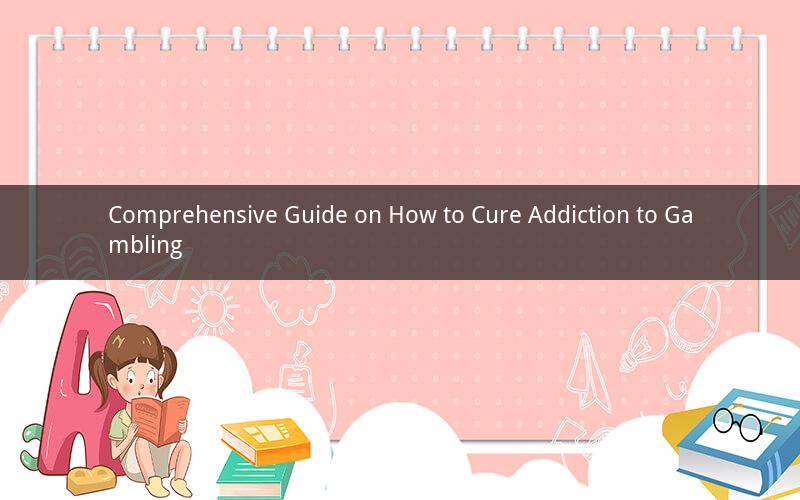
Gambling addiction is a significant problem that affects millions of individuals worldwide. It can lead to severe financial, emotional, and social consequences. If you or someone you know is struggling with this addiction, it's essential to seek help and understand how to cure it effectively. This article delves into the various aspects of gambling addiction, including its causes, symptoms, and treatment options. By the end, you'll have a comprehensive understanding of how to overcome this challenging addiction.
I. Understanding Gambling Addiction
A. Definition and Scope
Gambling addiction, also known as compulsive gambling, is an addictive behavior characterized by an inability to control the urge to gamble. It can affect people from all walks of life, regardless of age, gender, or socioeconomic status.
B. Causes of Gambling Addiction
Several factors contribute to the development of gambling addiction, including:
1. Genetic predisposition: Some individuals may inherit a tendency to develop addictive behaviors.
2. Brain chemistry: Dopamine, a neurotransmitter associated with pleasure, plays a crucial role in gambling addiction.
3. Environmental factors: Exposure to gambling opportunities, such as casinos, online gambling platforms, and advertisements, can trigger addiction.
4. Mental health disorders: Conditions like depression, anxiety, and bipolar disorder can increase the risk of developing a gambling addiction.
5. Peer pressure and social influence: People may turn to gambling as a means of escape or to impress others.
II. Recognizing Symptoms of Gambling Addiction
A. Behavioral Signs
1. Increasing the amount of time spent on gambling activities.
2. Lying to family and friends about gambling habits.
3. Borrowing money or selling possessions to fund gambling.
4. Skipping work, school, or other responsibilities to gamble.
B. Emotional and Psychological Symptoms
1. Feelings of guilt, shame, or remorse after gambling.
2. Difficulty concentrating or making decisions.
3. Depression, anxiety, or irritability.
4. Withdrawal symptoms when unable to gamble.
C. Financial Consequences
1. Accumulating significant debt due to gambling.
2. Struggling to pay bills, rent, or mortgage.
3. Jeopardizing savings or retirement funds.
III. Treatment Options for Gambling Addiction
A. Cognitive-Behavioral Therapy (CBT)
CBT is a type of therapy that focuses on identifying and changing negative thought patterns and behaviors associated with gambling addiction.
B. Support Groups
Support groups, such as Gamblers Anonymous, provide a safe and supportive environment for individuals struggling with gambling addiction to share their experiences and receive guidance.
C. Medications
Some medications, such as antidepressants and mood stabilizers, may help manage symptoms of underlying mental health disorders that contribute to gambling addiction.
D. Residential Treatment Programs
Residential treatment programs offer a comprehensive approach to treating gambling addiction, including therapy, support groups, and education.
E. Relapse Prevention
Developing a relapse prevention plan is essential for long-term recovery. This plan may include identifying triggers, developing coping strategies, and seeking support from family, friends, or professionals.
IV. Support and Resources
A. Family and Friends
Support from loved ones can be instrumental in overcoming gambling addiction. Encourage friends and family to learn about the addiction and how to provide effective support.
B. Professional Help
Seeking help from mental health professionals, such as therapists, counselors, or addiction specialists, can provide personalized guidance and support throughout the recovery process.
C. Online Resources
Numerous online resources, such as gamblinghelponline.org and gamblingtherapy.com, offer information, support, and resources for individuals struggling with gambling addiction.
V. Taking the First Step
Overcoming gambling addiction is a challenging process that requires dedication and commitment. Here are some steps to get started:
1. Acknowledge the problem: Admitting that you have a gambling addiction is the first step towards recovery.
2. Seek help: Reach out to friends, family, or professionals for support and guidance.
3. Create a support network: Surround yourself with people who understand and support your journey towards recovery.
4. Develop a relapse prevention plan: Identify potential triggers and develop coping strategies.
5. Stay committed: Overcoming addiction is a long-term process. Stay committed to your recovery journey and be patient with yourself.
In conclusion, curing addiction to gambling requires a multifaceted approach, including understanding the root causes, recognizing symptoms, seeking appropriate treatment, and maintaining a strong support system. By taking the first step and seeking help, you can overcome this challenging addiction and lead a healthier, more fulfilling life.
1. What are some common triggers for gambling addiction, and how can they be identified?
Answer: Common triggers for gambling addiction include exposure to gambling opportunities, such as casinos or online platforms, financial stress, or social pressures. Identifying these triggers involves self-reflection and understanding the circumstances that lead to increased gambling behavior.
2. How can cognitive-behavioral therapy (CBT) help in treating gambling addiction?
Answer: CBT helps in treating gambling addiction by identifying and changing negative thought patterns and behaviors associated with gambling. It can help individuals develop healthier coping mechanisms and reduce the urge to gamble.
3. Are there any medications that can be used to treat gambling addiction?
Answer: Yes, some medications, such as antidepressants and mood stabilizers, may be prescribed to manage symptoms of underlying mental health disorders that contribute to gambling addiction.
4. What role do support groups play in the recovery process for gambling addiction?
Answer: Support groups, such as Gamblers Anonymous, provide a safe and supportive environment for individuals to share their experiences, receive guidance, and offer mutual support throughout their recovery journey.
5. How can someone stay committed to the recovery process from gambling addiction?
Answer: Staying committed to the recovery process involves setting realistic goals, seeking ongoing support, celebrating milestones, and being patient with oneself. Building a strong support system and developing a relapse prevention plan can also help maintain commitment to the recovery journey.